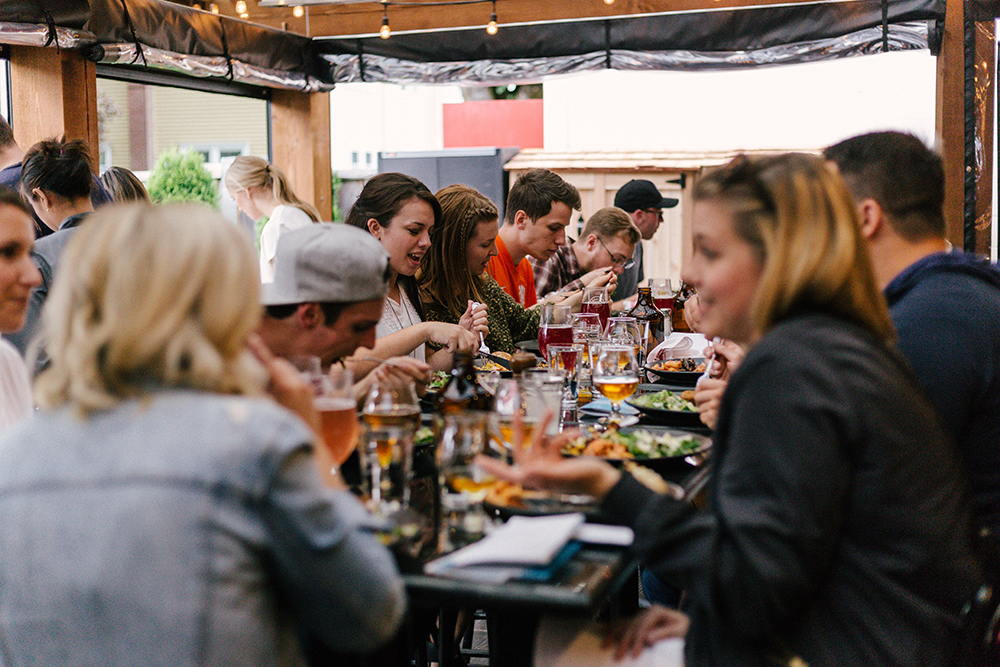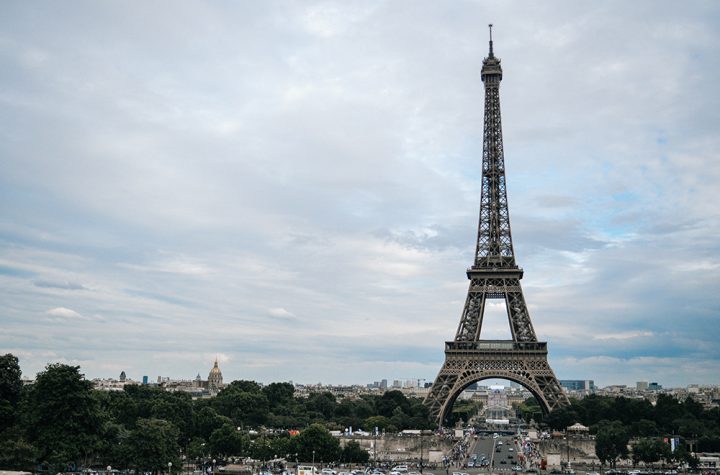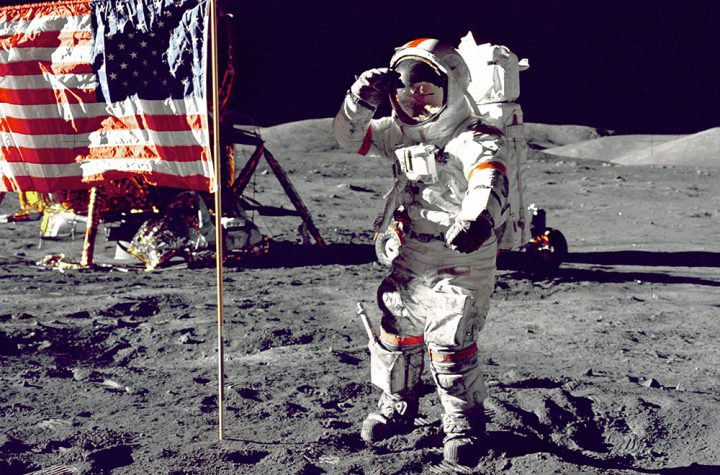
In less than a week, the Iowa caucuses will finally commence. This blessed event brings us closer to the end of primary season, but it also engenders its own form of controversy: Iowa is heavily rural and mostly white, yet it is accorded a special place as a bellwether for the party at large. At the New York Times, columnist David Leonhardt called the states first-in-the-nation status another form of privilege for groups that already benefit from the Senate and Electoral College white voters, older voters and voters outside of major metropolitan areas. Some Iowans also questioned the states caucus process itself, which demands a time commitment that may be prohibitive for working-class people.
The Iowa debate may be a harbinger of fights to come. Rural voters are a problem for Democrats. In 2016, Hillary Clinton lost rural voters to Donald Trump, by a lot. But the party seemingly has no consensus strategy for bringing these voters back into the fold. Democratic insiders and elected officials alike have offered various reasons for the partys weakness in rural areas, with some apportioning blame to a nascent left-wing insurgency within the party. But in her new book, Harvest the Vote, Nebraska Democratic Party leader Jane Fleming Kleeb argues that some blame lies with the party Establishment. The Republican Party takes us flyover voters for granted, and the Democratic Party has given up on us, she writes early in the book.
Kleeb, who endorsed Bernie Sanders for president in 2016 and is on the board of Our Revolution, doesnt believe that Democrats have to compromise on abortion rights or the fight against climate change to win rural voters. Rather, rural communities are more politically and demographically diverse than the press and the party make them out to be. She cites the case of the Keystone Pipeline, which united white farmers and indigenous communities in Nebraska in opposition to it, and adds, You do not need a perfectly poll-tested message. If you have that, you will sound like a robot. Rural voters, she suggests, are waiting for someone to show up and listen.
This interview has been edited for clarity and condensed for length.
Sarah Jones: Democrats obviously have a lot of ground to make up with rural voters. But how did they get so weak in rural areas in the first place?
Jane Kleeb: The Democratic leadership is concentrated on the coasts. I say in the book that for concrete party reform to happen, we do have to look at the geographic diversity of our leaders. Chair Perez has now appointed the different convention committees, he released those on Saturday, and its hard to find some rural people other than Heidi Heitkamp on that list. So the party is out of touch. The last time that the Democratic Party really showed up at a national level to rural states and stood with people was during the farm crisis in the 80s theres no other time [since then] that you can point where the Democratic Party decided that we are going to make a concerted effort to stand with rural people on a consistent basis and push policy that actually changes their daily lives.
What does that tell us about the priorities of the party? For example, you mention in your book that Democratic organizers basically left Nebraska after the successful fight to get the Affordable Care Act passed.
When Senator [Ben] Nelson was facing fire from the Republicans and even from some progressives, its like they totally forgot that he just helped secure one of the most significant pieces of health-care legislation in our nations history. Because he didnt fit the perfect mold of a perfect Democrat. He was then essentially left hung out to dry. And we could have won that seat. Senator Nelson could have won reelection, but he didnt think that the national party was going to stand with him. So he decided to retire.Were losing senators like Claire McCaskill or Tom Daschle. Several years ago, you know, these candidates used to win and our party used to have a message that resonated with rural voters. And I think most significantly, the state parties used to have resources to actually build up the infrastructure and be constantly on the ground in rural towns. But when youre a small state party, you can barely keep your doors open. And you cant be thinking strategically and putting bodies on the ground and canvassing and organizing in rural towns because you dont have the money to do it.
As you mention, moderate senators like Claire McCaskill have been losing seats in rural states. Do you think their losses occurred in part because these Democrats stopped promoting a message that resonated with rural voters?
Some of my progressive friends would probably be mad at this statement. But I think that ten years ago, Fox News wasnt necessarily fair and balanced, but it was way more moderate than it currently is. Now this one-sided, conspiracy-theory driven news coming from Fox is shaping peoples opinions, and theres no counter. Democrats arent appearing on Fox News to provide a counter message. And were not trying to counter that on the ground with any clear message.
So Im not sure I would put the blame squarely on Senator McCaskill and Senator Heitkamps shoulders. I think as a party, we have to take responsibility and we cant blame the voters, which is often the solution that I hear. You know, Screw the rural voters, theyre voting against their interests. No. When African-American or young people or Latino voters arent turning out at the levels we want them to, we take that seriously, and we create policies and programs to make sure that were reaching those folks. We need to do the same thing for rural voters. And we just arent.
Some Democrats have argued that Democratic senators in rural states have begun losing elections because the national party has lurched too far to the left. But in your book, you talk a lot about the appeal of the Green New Deal and the bipartisan nature of Nebraskas fight against the Keystone Pipeline, which indicates to me that you think its not quite so simple.
Yeah, I definitely do not believe in this mantra that our party needs to moderate in order to earn rural voters.Thats not my experience. You know, when you start talking to farmers and ranchers or people who live in small towns who may not farm and ranch, they have a lot of the same concerns that urban voters do. Our hospitals are closing or arent providing adequate treatment for cancer or mental health. Our schools dont have enough funding to adequately meet the needs of kids with special needs.We do have issues that are definitely kind of unique to rural areas. The right to repair and eminent domain are two very concrete examples where you could broaden a message to reach urban voters. Take right to repair: Farmers cant fix their own tractors right now, which is mind boggling. They have to travel long distances and spend lots of money in order to get their tractor fixed. So theres a bridge to rural voters that we could be talking about. And its all tied to the main message the Democrats: We fight for the little guy. Were not fighting for the big corporations. And that resonates with rural people. But, you know, were not showing up on a regular basis in our rural towns to explain this message. And that means bringing the AOCs and the Pelosis to our small rural towns. We dont need to hide our national leaders. Our national leaders need to show up so people start to feel seen and heard by the people that they see on TV. Its much more difficult to demonize our party when rural people are meeting face-to-face and when they see us standing with them on issues that they deeply care about.
On the subject of progressive policy, is there a way to talk about the Green New Deal in particular that effectively counters right-wing messaging?
When Im talking to farmers or if I was talking to a coal worker, Id rather be using language which resonates with them. Which is that we are not going to leave them behind as our country transitions to different forms of energy, and that we really have to honor the sacrifices that generations of coal miners made in order to make sure that our country had electricity. And that we know what happens in these situations and this goes for oil-rig workers as well when oil and coal are not as profitable. The workers are the ones that suffer first. Their pensions get cut, their health benefits get cut, their hours get cut. So thats where we as Democrats get up and say, as we do transition to clean energy, that were not going leave the workers behind.
When we hear about rural policy from Democrats running for office, the focus is usually on improving broadband access. Which is important, but rural communities have extensive needs that wont be fixed by broadband alone. What other policies should candidates introduce?
Theres the fact that our rural hospitals are closing and people are having to drive an hour to see a doctor. Or mental health our daughter has autism and it took us eight months just to get an initial appointment with one of the therapists in town because they are so understaffed. And we have no real programs at the state and national level that are recruiting people to live in rural communities in order to really meet these needs.
And Big Ag versus family farmers and ranchers is another big issue that resonates very loudly, whether youre in the South or in the Midwest or even on the coasts in rural towns. Unfortunately, the Green New Deal talking points lumped in corporate ag and farmers and ranchers all in one house, and they are very different houses. Corporate ag is on a yacht, and family farmers are still in a rowboat. And I think as Democrats, we should be talking about that a lot more and calling out the Costcos of the world and the Tysons and making sure that were not continuing to give corporate subsidies to those big corporations.
Looking ahead to the Iowa caucuses and the primary season in general, we know that Hillary Clinton in 2016 did not do well with rural voters. What do you think the next the next nominee can do to avoid making some of Clintons mistakes?
I do think that our nominee needs to step into red and rural states. The Kentuckys, the Wyomings, the West Virginias, the Nebraskas, are states where you can make inroads with voters and where we have made inroads as a party. So one is definitely showing up and physically being there. The second one is having surrogates who can deliver the message and be heard. [Montana senator] Jon Tester is obviously a perfect example. But Heidi Heitkamp, Claire McCaskill, Jim Hightower could all go into small towns and have a real conversation with voters saying, Look, you may have heard this at Fox News, but let me tell you really where our Democratic nominee stands on eminent domain, on health care, on climate change, on economics and the insecurity that so many of us are facing in our small towns.And then the third one, which is so obvious but gets overlooked, is funding the state parties. These state parties have opinion leaders and surrogates within the state that know all of these small towns where they can go and talk and visit with people. Theyre already on the ground. They know the experts. They know the issues. Theyre in touch with people. They just need the resources in order to do a better job reaching rural people because it takes longer in rural places.
Midwestern states are stereotyped as conservative bastions now, but historically they had their own version of progressive populism. Im really interested in the legacy of prairie populism, so I want to know: What might a 21st-century prairie populism look like, and how could a presidential candidate appeal to it?
Prairie populism resonates still in our small towns. Its this kind of independent thinking, where a community comes together to stand up to big corporations. Very David versus Goliath kinds of battles. Our homes are being completely destroyed for us in the Plains states. A lot of that is due to all these new export pipelines that are waiting to be built through the center of America, taking land through eminent domain for private gain. The Republican Party used to be the party of property rights and they have completely abandoned that. If we were to start talking about what it means to have land and protect that land, that not only goes for people against pipelines or other fossil-fuel projects that are hurting peoples economic interests and their water and contributing to climate change. But we could also talk about the border, and how ranches are being split in half and how families find their homes on the other side of Trumps new border wall. So there are ways that we can talk about property right where we also address some of these bigger issues, like climate change.
I also think that we as a party have neglected Native Americans. When was the last time we really lifted up the sovereign rights of tribal nations and talked about how our country is finally going to honor the treaties that we signed hundreds of years ago? Deb Haaland is beginning to try to make very clear statements in our party, along with Sharice Davids. But thats another issue that will resonate heavily with urban voters, as well as rural people, who know that Native Americans have been wronged. Thats why prairie populism for me means the party standing up for the little guy. I do think thats why Bernie Sanders is attractive to rural people, even if on the surface people think theres no way that he would be. Rural people think that if Bernie Sanders was in a room talking to China or other countries about a great deal, he would never sacrifice them or throw them under the bus. He would actually fight for them.
Im glad you mentioned Bernie Sanders! In 2016, he won the Democratic primary in the state of West Virginia, and I think that took a lot of people by surprise. The conventional wisdom at the time suggested that Hillary Clinton, as the more moderate of the two candidates, would be more appealing to voters in conservative states like West Virginia. And that was not the case. Do you think that that primary result was simply just a vote against Hillary or because rural voters liked Bernies specific message?
I know that Secretary Clinton was demonized for decades and that permeated for sure. But Bernies message does resonate with rural people and resonates with working-class people. You dont see a lot of mansions in rural America! There are middle-class, working-class families. And Bernies message, and Elizabeth Warrens on many levels, is attractive. I think people in rural America see Bernie as not fancy. Right? He doesnt wear fancy suits. They see that hes relatable and that hes been pushing against the system for decades. And this is where there is such a disconnect with our Democratic Establishment and some of our party leaders, where they think theres no way that somebody like Bernie could win. Im like, when was the last time you went to one of his rallies and you looked around the room to see that its working-class people? Or look at his donations, or just go to a rural town and ask people. Ive had plenty of conversations with people in rural communities that are like, Yes, I think thats a little bit crazy that Bernie said that, but I know hell fight for me. Thats essentially how theyll end every sentence.
A number of candidates have released rural policy platforms. Whos getting it right, and whose efforts need more work?
On a House level, JD Scholten, who is challenging Steve King in Iowa, blows everybody else out of the water when it comes to really amplifying what people in rural communities are saying, and in showing that the Democratic Party doesnt have to give up its values or its platform in order to reach those rural voters. And every presidential candidate frankly does have a strong rural platform out there. Its one of the reasons I love Iowa going first is because it forces the party to actually think about rural people at least once every four years and visit some small towns.
Some people have argued recently that Iowa should not go first. You dont agree?
I definitely hear peoples complaints. At the DNC its already been talked about initially at some of our meetings that therell be some type of commission that looks at how we do the primary. But I like Iowa going first for several reasons. I do think it forces the party to focus on rural people. But I also think that the caucuses train campaigns. Its like youre training for a marathon. It makes you completely focused on retail politics, on having to organize, truly organize, because you cant just buy a caucus. You have to go into all these small towns and bigger cities in Iowa and really do the house parties and a lot of door-to-door canvassing. So for me, it trains campaigns models so they can then run nationwide. And I think people dont look at the Iowa caucuses that way. They just think, Oh, its mostly white, and its a small state, so they shouldnt have as much say as they do. But Iowa trains candidates to be better nominees, no question.
One last question. In 2016, you endorsed Bernie Sanders for president. Are you prepared to make another endorsement this year?
So in 2016, I wasnt chair of the party yet. I had been elected, but theres a six-month waiting period. And the base of our state party asked us to pass a resolution saying that our officers would not endorse in primaries, not just for the presidential race but for local and federal candidates in the state. So I and the other statewide officers are neutral. Im still on the board of Our Revolution, but we created a legal document that walled me off from any discussions about what Our Revolution is going to do to help elect Senator Sanders.
Daily news about the politics, business, and technology shaping our world.
Terms & Privacy NoticeBy submitting your email, you agree to our Terms and Privacy Notice and to receive email correspondence from us.





More Stories
“Nobody is the reason for my death. My family is having to bear a lot of expenses because of me. I am a burden to them, my education is a burden to them….” A day after she wrote this note, Aishwarya Reddy, a student at Lady Shri Ram College for Women in Delhi…
Tom Brady’s arrival had the Buccaneers dreaming of an NFC South title, but the Saints showed the QB and his team they’re a far from being a contender.
Barnaby Joyce claims he told Malcolm Turnbull ‘others’ were having affairs